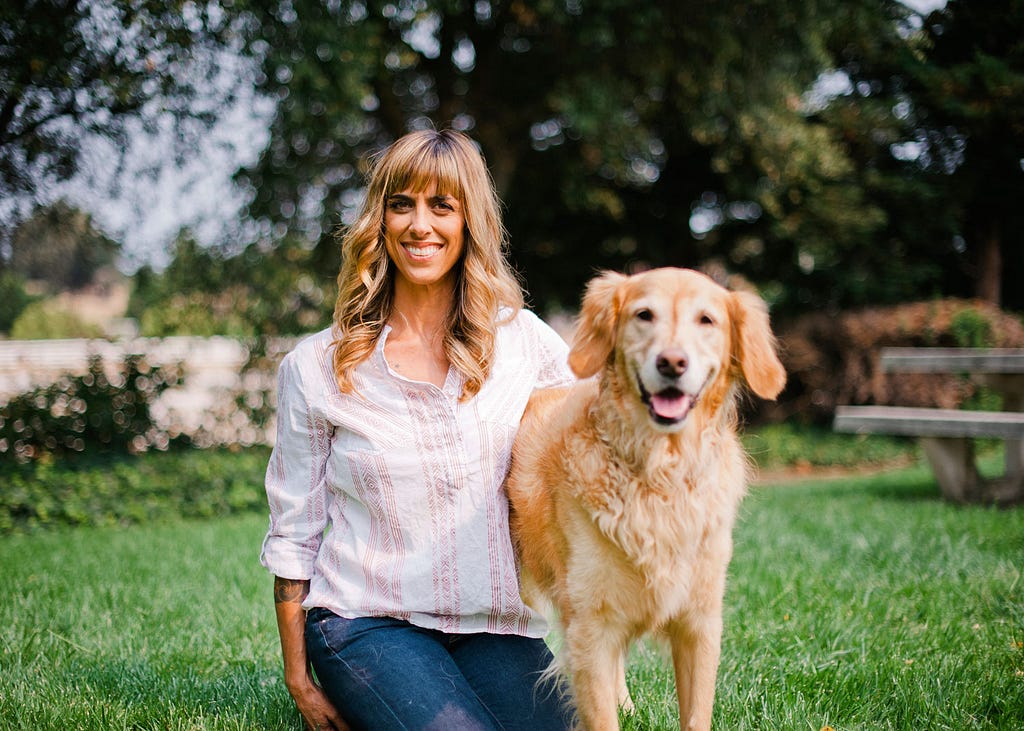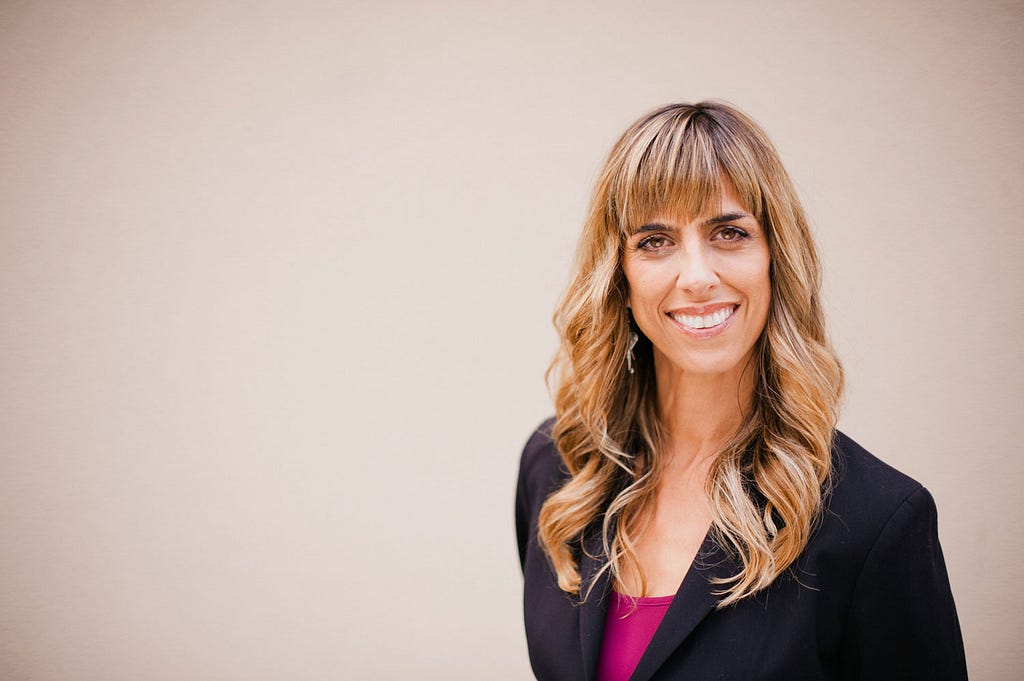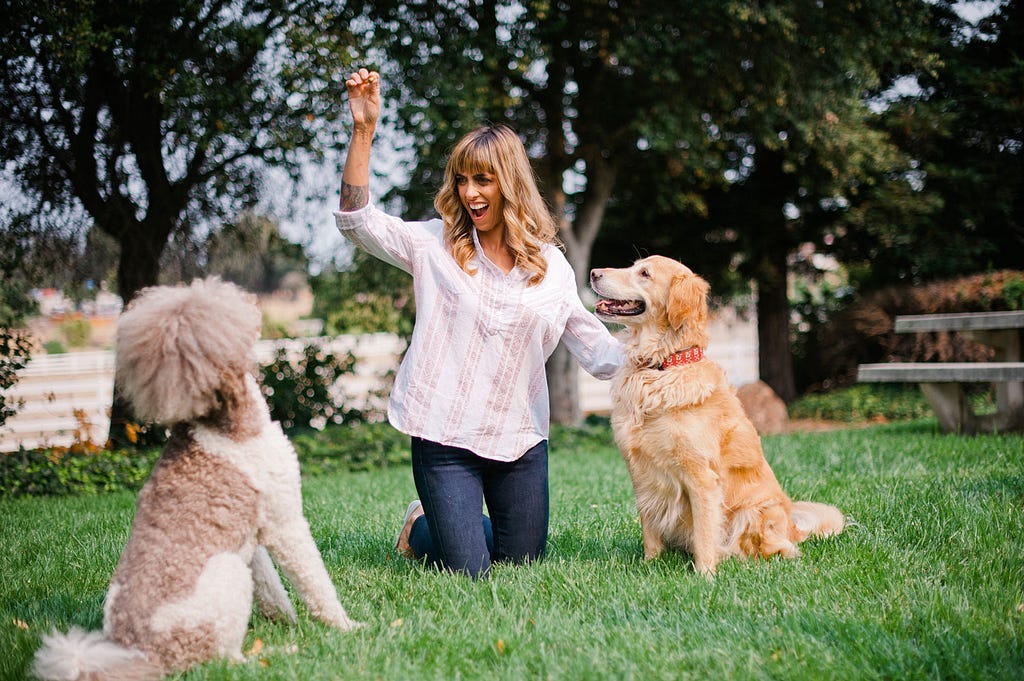Julianna Carella: “The larger a brand or company becomes, the more intimate the relationship with their customers needs to be”

We strongly believe that the larger a brand or company becomes, the more intimate the relationship with their customers needs to be. There is good reason why the cannabis industry fears corporate takeover; the world of health and wellness needs a new model that addresses the disconnect with customers and their needs. The cannabis industry, having grown from a grass roots movement, has a strong connection to the people who fought for it. Brands, no matter how large or small, that align with this purpose seem most likely to succeed.
As a part of my series about “the 5 Things I Wish I Knew Before I Started Leading a Cannabis Business ”, I had the distinct pleasure of interviewing. Julianna Carella. Julianna is a trailblazer — fearless, focused, driven and always ahead of the competition. Her story is noteworthy in that she’s built one of the world’s first medical cannabis companies and since 2008 has created not one, but two multi-million dollar enterprises. These brands are dramatically altering the quality of life for health-conscious consumers and their pets by both providing broad access to safe alternatives and educating the public on the therapeutic value of cannabis and hemp. Carella began her career in San Francisco as a professionally trained dancer. After having her first child, she shifted gears to formally study her long held interest in homeopathic medicine. After some time, she realized how challenging that career was for a young, single mother and pivoted her focus towards accounting. During her time as a bookkeeper, Carella started a side business making medical cannabis edibles for friends and family members who suffered from numerous ailments. When an acquaintance suggested she turn her baking and formulation skills along with her homeopathic background into something more, Carella found that her commitment to helping those around her had untapped potential to grow commercially. In 2008 she established Auntie D’s Apothecary, one of the first five medical cannabis companies in California and began creating a variety of edible cannabis products for people under the brand name of Auntie Dolores (meaning: Anti-pain). She built her business on core principles of health freedom: delivering a gourmet experience, remaining environmentally focused, responsible consumption and the pursuit of thought leadership. Understanding that every patient had different needs and should be able to manage their own doses, she quantified the THC and other phytocannabinoids, offering options in milligrams. As her business grew, she developed choices to serve the needs of diet-restricted consumers, believing that this range of unique treatment options should be accessible to all. In 2011 Auntie D’s began cultivating CBD-rich cannabis in Mendocino California and began new product development. Eventually, clients began to ask if they could use Auntie D’s products to treat their ailing pets. She was again inspired and developed a line of pet products infused with CBD rich oil. In 2013 Auntie D’s introduced Treatibles, becoming the pioneer in creating CBD products for pets. Understanding the new opportunity with hemp, Julianna created a proprietary formula sourced from the company’s own organic hemp grown in South Carolina, where she forged a relationship with master cultivators at the forefront of hemp legalization. The exceptional oil yields an unmatched cannabinoid and terpene profile, creating the entourage effect, providing a full spectrum of benefits for pets that is virtually free of THC, non-psychoactive and non-toxic. Maintaining quality, consistency and transparency became a company mantra. Born from a passion to help people and, subsequently, pets thrive, both Auntie D’s and Treatibles promote Harmony for the Whole Family® through the happiness and health of each member. Both brands prioritize educating the public on the benefits of full spectrum hemp oil featuring naturally occurring CBD for both humans and pets. Treatibles is now a multi-million dollar company offering organic full spectrum CBD-rich hemp oil products including functional chews, oils and capsules in various potencies that helps pets of all shapes, sizes and conditions. Treatibles are available from coast to coast as well as internationally. And Carella is still dancing everyday, to the beat of her own hemp drum.
Thank you so much for doing this with us! Can you share with the ‘backstory” about what brought you to the cannabis space?
In 2008 during the economic downturn, my daughter was approaching college age and my career as a bookkeeper became dull. I saw an opportunity that existed in a time that was to change forever merely a decade later. Being one of the first movers in the California cannabis space led the way to opportunities and expansion, but also meant much of the groundwork and infrastructure for the industry was still to be realized.
Much of our work has been focused on lifting cannabis prohibition and educating the public about the benefits of phytocannaninoids, necessary developments in the evolution of the industry.
Can you share the most interesting story that happened to you since you began leading your company?
The most interesting story is really more of a strange fact. The growth of the Auntie Dolores brand happened during a time when advertising for cannabis brands was illegal and yet within a year of our founding date, the demand for our product spread from the Emerald Triangle all the way to San Diego. Word of mouth, guerilla marketing, and social media are responsible for this success. This taught me to never underestimate the ability to create brand loyalty and generate good will through direct interaction with our customers, even if prevailing law makes it difficult.
Can you share a story about the funniest mistake you made when you were first starting? Can you tell us what lesson you learned from that?
The funniest mistake I made was when I needed to find a bank that would allow us to open a business checking account. In disbelief that a bank could deny banking services to any company, I completed the application with 100% honesty. That didn’t go well, because before I even finished the application, I was escorted out the front door. I then fought tirelessly to lift the federal ban on cannabis, and remove it from the Controlled Substance Act, so that cannabis operators could bank successfully.
Are you working on any exciting projects now?
Because our product line has shifted towards CBD from THC, we have found ourselves more involved in the hemp space. We continue to add products to our product line that are designed for other species, including cats and horses. We have also formed an important partnership in Japan, where Treatibles will be available later in 2019.
None of us are able to achieve success without some help along the way. Is there a particular person who you are grateful towards who helped get you to where you are? Can you share a story?
The person I am most grateful for is my Nanno (grandfather), Michael Carella who is no longer with us, sadly. He was a brilliant man that was a pharmacist that sold medical alcohol during prohibition, and then later found success in the alcohol industry, owning liquor stores in San Francisco. Although he was not alive when I founded this company, I believe he guides me through spirit.

This industry is young dynamic and creative. Do you use any clever and innovative marketing strategies that you think large legacy companies should consider adopting?
We strongly believe that the larger a brand or company becomes, the more intimate the relationship with their customers needs to be. There is good reason why the cannabis industry fears corporate takeover; the world of health and wellness needs a new model that addresses the disconnect with customers and their needs. The cannabis industry, having grown from a grass roots movement, has a strong connection to the people who fought for it. Brands, no matter how large or small, that align with this purpose seem most likely to succeed.
Can you share 3 things that most excite you about the Cannabis industry? Can you share 3 things that most concern you?
Three things that most excite me about the Cannabis Industry are:
- We are getting closer and closer to full legalization of cannabis and hemp. We should all be reminded that the prohibition of cannabis represents a small sliver of time taken from the full history of the plant. People and animals have enjoyed the benefits of the plant for thousands of years; prohibition will (hopefully) be no more than a century long once it is all said and done.
- There is much more to discover about the plant; now that hemp is no longer a controlled substance, we will see more research into the benefits of cannabinoids. Hopefully, this will mean more research here in the USA.
- Everything that happens in the cannabis/hemp space happens in dog years. One year of progress can feel more like seven years when you consider how much happens in that period. A fast-moving new industry is exciting, and full of opportunity!
Three things that concern me most about the Cannabis Industry are:
- Being an entrepreneur in the cannabis and/or hemp space can often feel like extreme business. Cannabis companies have extra challenges that are industry related; other industries, including the alcohol industry do not face the same challenges as cannabis companies. Many of the inherent challenges can lead to business owner burn out. (Cannabis happens to be a fantastic aid for stress, and entrepreneurs should enjoy a healthy regimen of it.)
- The patchwork of different regulations that exist in both the hemp and cannabis industries is something that makes business cumbersome and causes confusion in society, law enforcement, etc. The ban on cannabis in many parts of the country, as well as in states that have cannabis laws, but lack local support only drives more business to the black market. Eventually, full legalization of cannabis would be a step towards a unified regulatory system, as well as an end to the black market.
- The cannabis industry has collective amnesia. This may be due to the fact that things are changing so quickly. It’s important to remember history, the pioneers who fought for this plant’s freedom, and how we got where we are today.
Can you share your “5 Things I Wish Someone Told Me Before I Started Leading a Cannabis Business”? Please share a story or example for each.
Banking challenges will slow you down, but they won’t take you down. It’s been an incredible challenge to run successful cannabis/hemp brands with limited banking. I look forward to some of this changing with hemp’s new classification.
You’ll be spending more time studying regulatory compliance than you may like. To be a successful cannabis or hemp brand, knowledge of current and changing laws for proper marketing and labelling of THC and CBD products is essential.
Balancing adaptability and tenacity is an everyday effort. In any nascent industry, entrepreneurs need to be agile enough to manage the unexpected, while still maintaining a tenacious follow through on the original business objectives.
It’s not all about getting high. Thanks to the discovery of CBD and other beneficial cannabinoids, more opportunities exist for entrepreneurs.
There’s light at the end of the tunnel, but it is a very long tunnel. I never imagined that 11 years after our founding date cannabis would still be a Schedule 1 narcotic. Although we may be years away from full federal legalization, there has been tremendous progress in the past decade. This speaks to the necessity for activism as well as the success of the grass roots cannabis movement.

You are a person of great influence. If you could inspire a movement that would bring the most amount of good to the most amount of people, what would that be? You never know what your idea can trigger. 🙂
Cannabis and hemp have the ability to change the world for the good. If you consider the endless benefits of the plant, it becomes clear how much potential it has to offer safer more sustainable alternatives, not only in medicine and wellness, but also industrial/textile/plastic. If every person was committed to ending the stigma and prohibition of this miraculous plant, we would be that much closer to a gentler, more sustainable planet.
Julianna Carella: “The larger a brand or company becomes, the more intimate the relationship with… was originally published in Authority Magazine on Medium, where people are continuing the conversation by highlighting and responding to this story.



